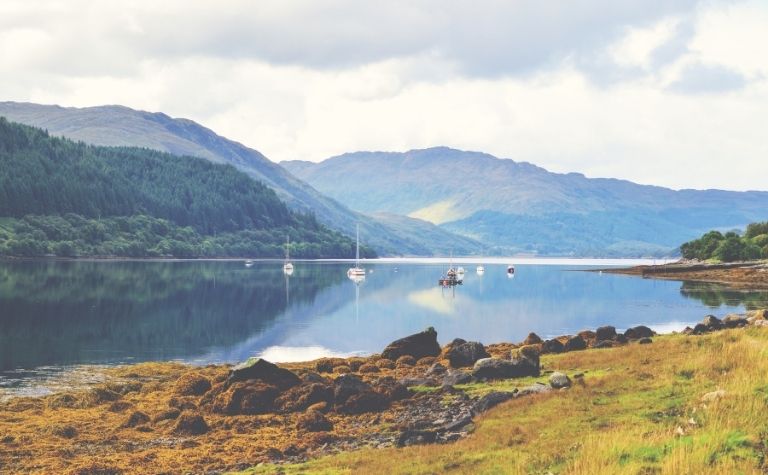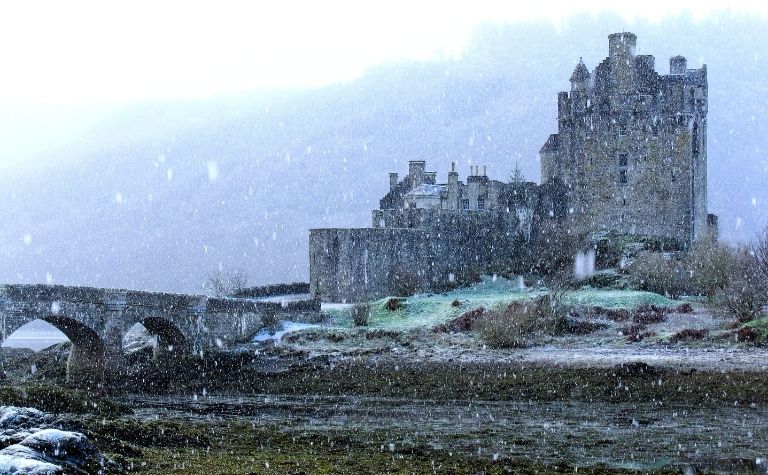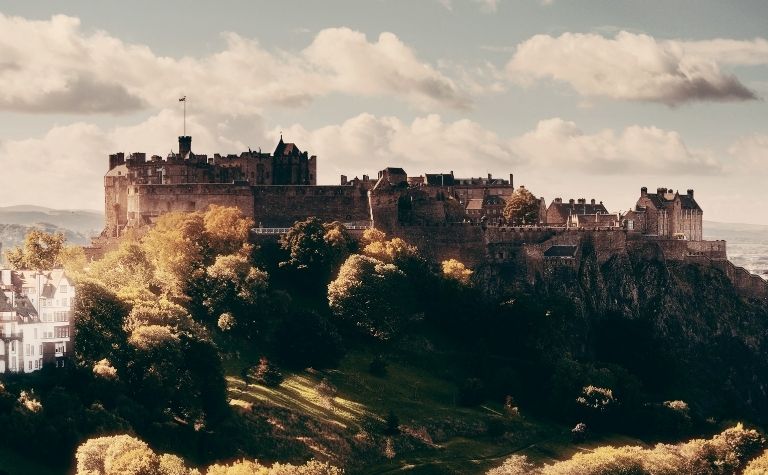Most people associate the Vikings with the Scandinavian countries of Norway, Iceland, and Denmark.
However, Scotland is just across the North Sea from these countries, so could Scottish people be descended from Vikings?
Some Scottish people are descendants of Vikings, though not as many as in the Scandinavian countries.
Furthermore, most Scottish Viking descendants are from the Northern Isles of Scotland. People in regions farther south don’t have as much Viking heritage.
This article will explore where Scottish people are from, whether or not there were Vikings in Scotland, and whether Scottish people are considered “Scandinavian.”
It will also discuss the Vikings’ raids and conquests into what is now the United Kingdom and how they relate to Viking ancestry.
Also see Vikings vs German Barbarians: What’s the Difference? to learn more.

Where Do Scottish People Come From?
Scottish people come from Scotland. However, just saying Scottish people are from Scotland doesn’t explain the complexity of Scottish heritage.
Many Scottish people, or Scots, have Irish or Gaelic ancestry. However, others have Scandinavian, Pictish, German, and Briton heritage, as well.
The diverse genetic makeup of Scottish people comes from the country’s colorful history.
For example, the Vikings invaded Scotland sometime in the 8th century, introducing Scandinavian blood into the Scottish genetic makeup. [1] (This article will cover more of that in the next section.)
However, there were plenty of people fighting over the land before the Vikings made it to Scotland.
Four primary groups fought for dominance in the years before the Vikings started to arrive. They were:
- The Picts (Native Scotlanders)
- The Scots (Ireland)
- The Angles (Germany)
- The Britons (Britain and Native South Scotlanders) [2]
Eventually, the Picts and Scots gained control of modern-day Scotland in 843 AD.
However, it’s unreasonable to assume there weren’t still people with German and British heritage in the area. Additionally, the Vikings were still raiding the country’s shores.
A study conducted in 2019 determined that modern Scottish people have the following genetic and ethnic markers:
- Irish/Gaelic
- German
- Celtic
- Saxon
- Scottish
- British
- Norwegian/Icelandic/Scandinavian [3]
Additionally, the study found that the genetic makeup in Scotland is pretty similar to what it would have looked like in the Dark Ages.
Then, there were six genetically distinct groups of people, identified by where they lived in Scotland:
- Shetland
- Orkney
- Hebrides
- Northeast
- Southwest
- Borders
Today, these groups still exist in Scotland, and people in the various areas have distinct genetic markers that identify them as inhabitants of these regions.
Also see How Did Vikings Treat Their Wives? to learn more.

Were the Vikings in Scotland?
There were Vikings in Scotland from approximately the 8th century until the 13th century.
However, the Vikings’ influence on Scottish culture lingered for decades afterward, not totally disappearing until sometime in the mid-15th century.
These Viking raiders came primarily from Norway. However, other Scandinavian countries also sent raiders to Scotland’s shores.
Eventually, Scandinavian Vikings established a settlement in Orkney, establishing Jarl (Earl) Sigmund the Mighty (Sigurd Eysteinsson) as the first* Earl of Orkney.
The Viking settlement at Orkney was constantly at odds with the other surrounding areas, including Ireland and the Kingdom of the Isles.
Eventually, Vikings would inhabit and control other areas of Scotland, including:
- The Firth of Clyde
- Sutherland
- Caithness
- The Hebrides
- Shetland
Viking command of Scotland picked up in the 11th century under the rule of Thorfinn Sigurdsson. He was the Viking leader who moved Viking expansion from Northern Scotland to mainland Scotland.
From the 11th to 13th centuries, Viking and Scandinavian influence grew and spread throughout the country.
However, the Scottish had regained control of most of Scotland by 1231. At that point, Viking culture remained but began to fade. Some vestiges of it held on until the 15th century.
After that point, though, it died out completely.
*Note: Some sources claim that Sigurd’s brother Rognvald Eysteinsson was the first Earl of Orkney. However, most historians, and the Heimskringla, agree that he never actually claimed the title. Rognvald was an earl (jarl), but he likely never reigned in Orkney.
Also see Why Did the Vikings Die Out? to learn more.
Do Scottish People Celebrate Their Viking Heritage?
Having Viking ancestry doesn’t seem to be as important to the people of Scotland as it is to Scandinavians.
However, that doesn’t mean they don’t celebrate it.
The Scottish people of the Shetland Islands celebrate their Viking heritage with an annual Fire Festival, held to commemorate the Vikings that once lived there.
The celebration is held every January in the town of Lerwick, the Shetland Islands’ capital city.
At this festival, people dress as Vikings and carry axes and torches through the town, singing and hauling a Viking longship behind them.
The festival attendees then set the boat on fire and cast it afloat in the water.
Also see Did the Vikings Discover America? to learn more.

Are Scottish People Scandinavian?
Scottish people aren’t Scandinavian. However, Scottish people in Shetland and Orkney have a reasonable amount of Scandinavian DNA.
These were the areas hit hardest and eventually settled by Vikings, so finding more Scandinavian DNA there makes sense.
According to the same 2019 study referenced above, the highest percentages of Scandinavian DNA exist in Shetland.
There, the rate reaches as high as 28%. The average percentage in the Shetland/Orkney area hovers around 13%.
To a lesser extent, scholars can also trace Scandinavian DNA to other regions of Scotland, especially in the Northern territories.
For example, there’s approximately 7% Scandinavian DNA in the Hebrides.
However, the percentage of Viking DNA drops drastically the further south one moves into mainland Scotland, with many areas not having any Scandinavian DNA at all.
Also see Were the Vikings Celtic? to learn more.
Who Has the Highest Percentage of Viking DNA in the UK?
The northern regions of Scotland have the highest percentage of Viking DNA in the UK.
However, Viking DNA also exists in England, Ireland, and Wales to a lesser extent.
According to the most extensive Viking DNA sequencing study ever conducted (led by the Universities of Cambridge and Copenhagen), the United Kingdom has 6% Viking DNA. [3]
To the average reader, 6% may not seem like a lot. However, compared to Sweden’s 10%, 6% is a pretty significant amount.
After all, Sweden is part of the Scandinavian countries and still only has 4% more Viking DNA than the UK.
Conclusion
Some, though not all or most, Scottish people are descended from Vikings or can at least claim Scandinavian heritage.
Also see Vikings vs Anglo-Saxons: Comparison to learn more.
